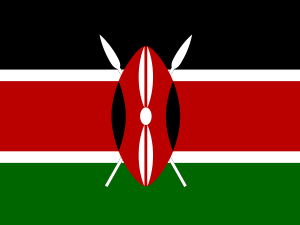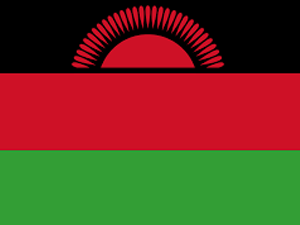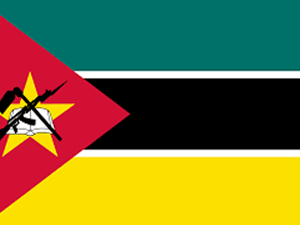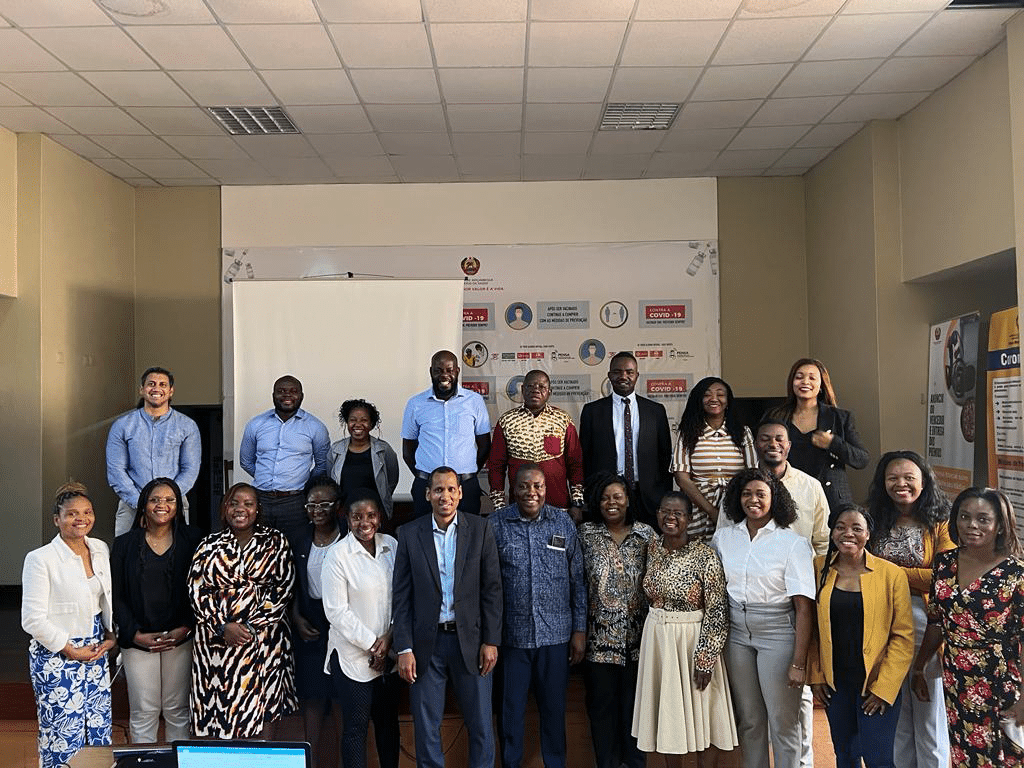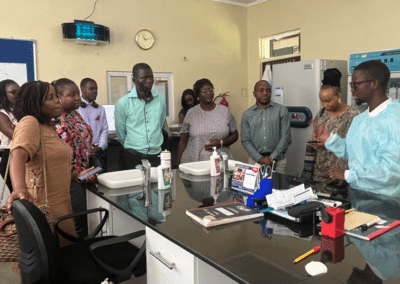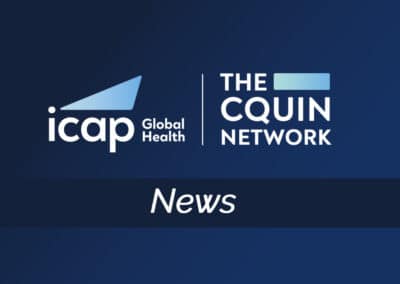Following a CQUIN-supported visit by teams from Ghana and Uganda to Mozambique, the three countries are working hard to improve the integration of family planning (FP) services within differentiated HIV treatment programs. All three countries described their HIV/FP integration initiatives as less mature during the 2023 CQUIN capability maturity model self-staging process, so CQUIN organized the learning visit from September 18-22, 2023, to enable country representatives to engage each other and ICAP CQUIN staff for a deep exchange on cross-cutting gaps, challenges, and opportunities to improve HIV/FP integration.
“As a country program, we have a few facilities that offer HIV/FP integration services, but only for short-term FP methods such as condoms and oral and injectable contraception,” said Hélder Macul, MD, MPH, technical advisor for Care and Treatment at Mozambique’s National STI, HIV/AIDS Control Program. “We recognize this gap, so we had several goals for participating in this learning visit, including learning how other country teams manage commodities for FP/HIV integration, registration and reporting tools for M&E, and health worker workload within integration. We were impressed by Ghana’s integration of HIV services into all health services in health facilities and Uganda’s M&E reporting of FP/HIV integration. We have a long way to go, but we believe we have learned lessons from this visit that we can implement, starting with the update of policies and training packages for integrating FP services into our HIV programs.”
During the visit, each country explained the context of FP integration into HIV services in their setting, including available FP/HIV integration policies, guidelines, resources, tools, FP/HIV integration coverage, and more. Following these briefings, the Mozambique Ministry of Health supported site visits to several facilities.
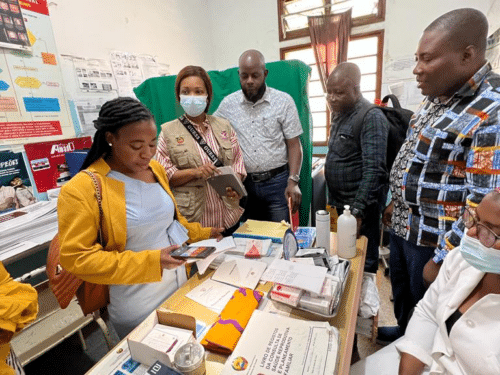
Team Ghana and Uganda at one of the site visits
The Uganda team’s post-visit action plan includes prioritizing access to comprehensive FP services at every stage of care within HIV clinics, including the utilization of job aids and the promotion of mixed contraceptive methods.
The Ghana team aims to set targets to improve their FP/HIV integration score. “The challenge is that we haven’t engaged the two main stakeholders — Ghana’s Family Health Division and the Policy Planning Monitoring and Evaluation Division to agree on a set target,” said Stephen Ayisi Addo, MBChB, MPH, head of Ghana’s National AIDS Control Program after the visit. “This is primarily because we don’t have baseline data on FP/HIV as a reference to guide the target. Once we set those targets, we will update the M&E system to ensure routine data collection and reporting of that indicator to help us measure progress.”
For CQUIN leadership, the hope is that these visits can help advance country efforts in improving FP/HIV integration a little further. “For these FP/HIV visits, we selected countries that had included FP/HIV integration within their country action plans after the CQUIN sixth annual meeting and countries where there were pockets of implementation or political will for FP/HIV integration,” said Rudo Kuwengwa, MD, MPH, CQUIN clinical advisor and co-lead of CQUIN’s MCH stream of work.
The visit was the second in a series of planned visits CQUIN is organizing as part of its FP/HIV integration stream of work. Learn more about the first visit hosted by the Rwanda Ministry of Health here.









